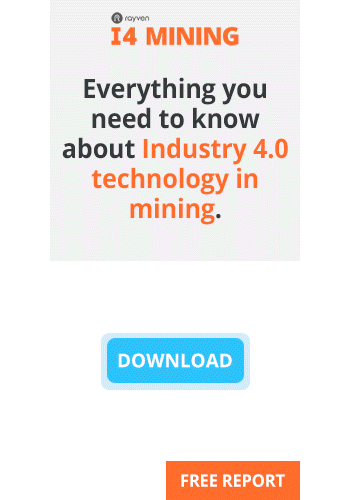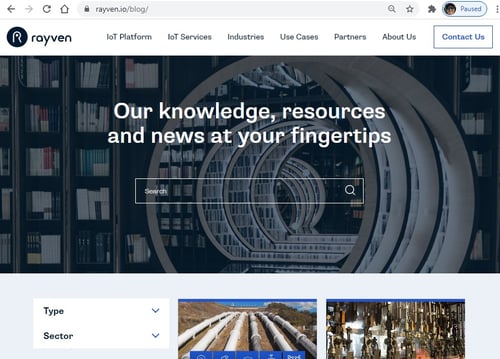Considerations when adopting Industry 4.0 technology in the mining sector
Blog
Everyone talks about the benefits of Industry 4.0 technology, but there are considerations to be aware of.
Realising the need to change and understanding how investment in these technologies will help the mining sector to achieve its business goals is essential, but so is preparing the organisation ahead of any technology implementation to mitigate the challenges that it can bring - it will also support the sector when exploring its options.
- Security & operational risks - New technology brings with it threats. The potential for new outages that stop operations should be considered, as should the potential cybersecurity threats from private and government actors. There are ways to mitigate these risks, notably with effective enterprise security, closed-loop systems, as well as back-up and DR planning; however, the adoption of Industry 4.0 technology will inevitably increase an organization’s attack surface and security should always be a key consideration when examining any new piece of technology.
- Workforce skills - Few industries’ workforces are adequately prepared for adoption of Industry 4.0 technologies. There is a large skills gap when it comes to the technologies that are likely to drive it, meaning internal teams will need to be retrained and new skills acquired if the mining sector is to be able to adopt, run and optimize Industry 4.0 technology. Whilst it’s always possible to buy these skills, long-term success will require more of these to exist in-house, close to the operations or in the field.
- Interoperability - Many of the out-of-the-box solutions that offer Industry 4.0 functionality exist in closed technology ecosystems. Whilst they may integrate with general business technologies (CRM etc.) and other systems in their product suite, what they don’t provide is a platform through which it is possible to integrate anything and everything. To develop a true best-in-class Industry 4.0 approach that fits operations perfectly in every way, it is necessary to adopt sustainability solutions built on a single Sustainability Performance Platform (SPP) that’s capable of integrating with any technology on a real-time basis, effortlessly.
- Existing technologies & plant - A lot of the world’s mines and processing plants are running old, antiquated technologies. Whilst the electrification of operations will demand changes, some assets will be capable of being retrofitted with IoT devices, connected to gateways, networks and communication technologies that can extend their working lives. For those that can’t, the cost of replacement will need to be considered or, minimally, the connectivity status of assets and plant be considered in the buying processes.
- Speed and deployment - Many providers’ technology roll-outs go at a pace that means that commitment to an Industry 4.0 technology needs to be complete and long-term. Whilst this is great for the technology provider, the miner is always at a disadvantage and long-running transformation projects are invariably unsuccessful ones as costs get sunk into the roll-out, rather than the optimization. Pilot projects and solutions that can be in the field and operating in weeks will give a higher probability of success, because they will be able to be optimized to meet the real-world faster, learning operations, and uncovering new ways to solve complex problems.
- Scalability - Technologies that aren’t scalable or capable of handling the data volumes needed to process an entire operations’ data cannot achieve true Industry 4.0 status. Similarly, if the costs involved with operating at scale are likely to eclipse marginal gains, then those solutions will never achieve the scale needed to benefit fully from the technology. Miners need to be aware of capabilities, options for Edge processing, as well as cost structures before committing capital to projects.
- Self-sufficiency & partner ecosystem - Many providers of specialist mining technology do so with a siloed view as to how that technology should be developed, deployed, run and/or optimized. What this means is that the technologies are too complicated to be used, modified or enhanced by all but the most highly-trained - or not at all inhouse. As previously mentioned, to succeed with Industry 4.0 technology, the cherry picking of technologies to best fit individual organization needs is critical. The mining sector should be looking at technologies that boast a global partner network to support faster, wider roll-outs, as well as the technology’s own ease-of-use to get teams up-and-running, end-to-end.
I4 Mining is a sustainability technology provider to the mining sector, offering ready-to-deploy ESG solutions that help miners to succeed both strategically and operationally without ever getting in the way of good business.
Our solutions enable you to easily develop strategies, deliver accurate sustainability metrics and reports in real-time, improve sustainability and business performance, as well as make predictive analytics and forecasts part of your everyday so that you can reduce risks and optimise from mine-to-market.
Speak to us today to book a demo and discover how you can get started on your digital sustainability journey.
Want to know about industrial AI + IoT more broadly?
If you'd like to find out more about the technology that underpins all of our digital mining solutions, other industrial uses of AI + IoT, or are eager to get into the detail of precisely what AI and IoT technology are then visit the Rayven blog.




